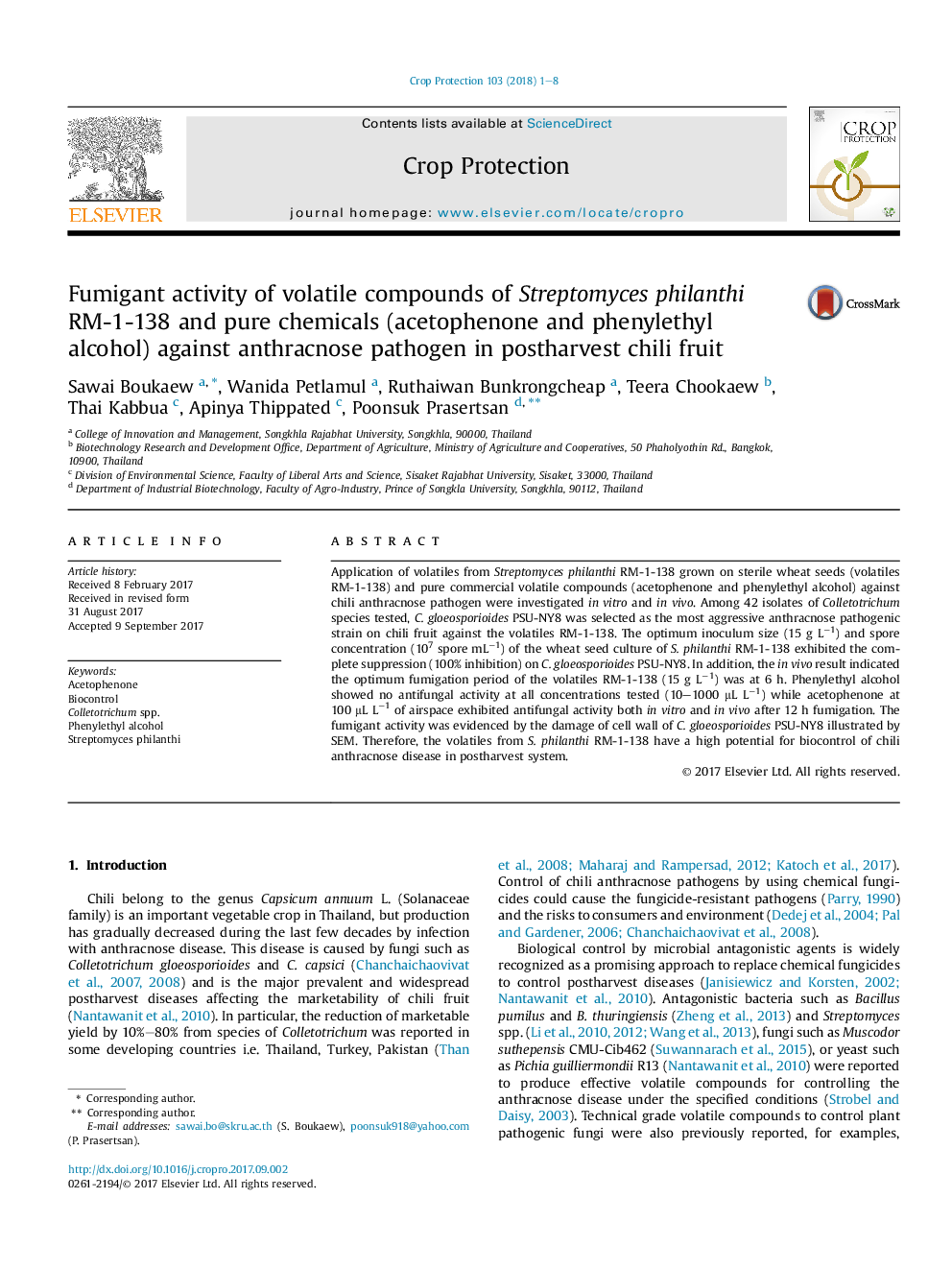| Article ID | Journal | Published Year | Pages | File Type |
|---|---|---|---|---|
| 5760983 | Crop Protection | 2018 | 8 Pages |
Abstract
Application of volatiles from Streptomyces philanthi RM-1-138 grown on sterile wheat seeds (volatiles RM-1-138) and pure commercial volatile compounds (acetophenone and phenylethyl alcohol) against chili anthracnose pathogen were investigated in vitro and in vivo. Among 42 isolates of Colletotrichum species tested, C. gloeosporioides PSU-NY8 was selected as the most aggressive anthracnose pathogenic strain on chili fruit against the volatiles RM-1-138. The optimum inoculum size (15 g Lâ1) and spore concentration (107 spore mLâ1) of the wheat seed culture of S. philanthi RM-1-138 exhibited the complete suppression (100% inhibition) on C. gloeosporioides PSU-NY8. In addition, the in vivo result indicated the optimum fumigation period of the volatiles RM-1-138 (15 g Lâ1) was at 6 h. Phenylethyl alcohol showed no antifungal activity at all concentrations tested (10-1000 μL Lâ1) while acetophenone at 100 μL Lâ1 of airspace exhibited antifungal activity both in vitro and in vivo after 12 h fumigation. The fumigant activity was evidenced by the damage of cell wall of C. gloeosporioides PSU-NY8 illustrated by SEM. Therefore, the volatiles from S. philanthi RM-1-138 have a high potential for biocontrol of chili anthracnose disease in postharvest system.
Related Topics
Life Sciences
Agricultural and Biological Sciences
Agronomy and Crop Science
Authors
Sawai Boukaew, Wanida Petlamul, Ruthaiwan Bunkrongcheap, Teera Chookaew, Thai Kabbua, Apinya Thippated, Poonsuk Prasertsan,
